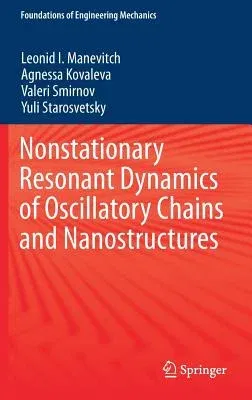This book suggests a new common approach to the study of resonance
energy transport based on the recently developed concept of Limiting
Phase Trajectories (LPTs), presenting applications of the approach to
significant nonlinear problems from different fields of physics and
mechanics. In order to highlight the novelty and perspectives of the
developed approach, it places the LPT concept in the context of
dynamical phenomena related to the energy transfer problems and applies
the theory to numerous problems of practical importance. This approach
leads to the conclusion that strongly nonstationary resonance processes
in nonlinear oscillator arrays and nanostructures are characterized
either by maximum possible energy exchange between the clusters of
oscillators (coherence domains) or by maximum energy transfer from an
external source of energy to the chain. The trajectories corresponding
to these processes are referred to as LPTs. The development and the use
of the LPTs concept a
re motivated by the fact that non-stationary processes in a broad
variety of finite-dimensional physical models are beyond the well-known
paradigm of nonlinear normal modes (NNMs), which is fully justified
either for stationary processes or for nonstationary non-resonance
processes described exactly or approximately by the combinations of the
non-resonant normal modes. Thus, the role of LPTs in understanding and
analyzing of intense resonance energy transfer is similar to the role of
NNMs for the stationary processes. The book is a valuable resource for
engineers needing to deal effectively with the problems arising in the
fields of mechanical and physical applications, when the natural
physical model is quite complicated. At the same time, the mathematical
analysis means that it is of interest to researchers working on the
theory and numerical investigation of nonlinear oscillations.

